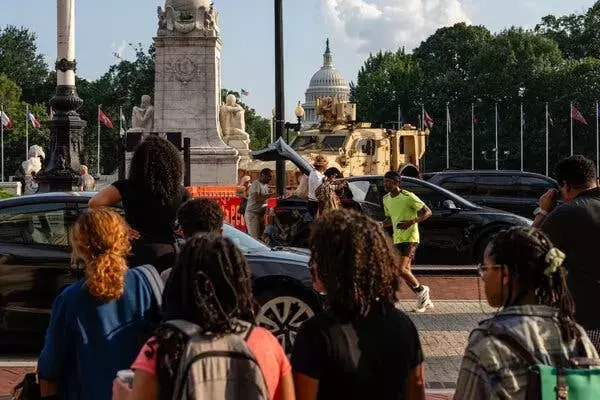
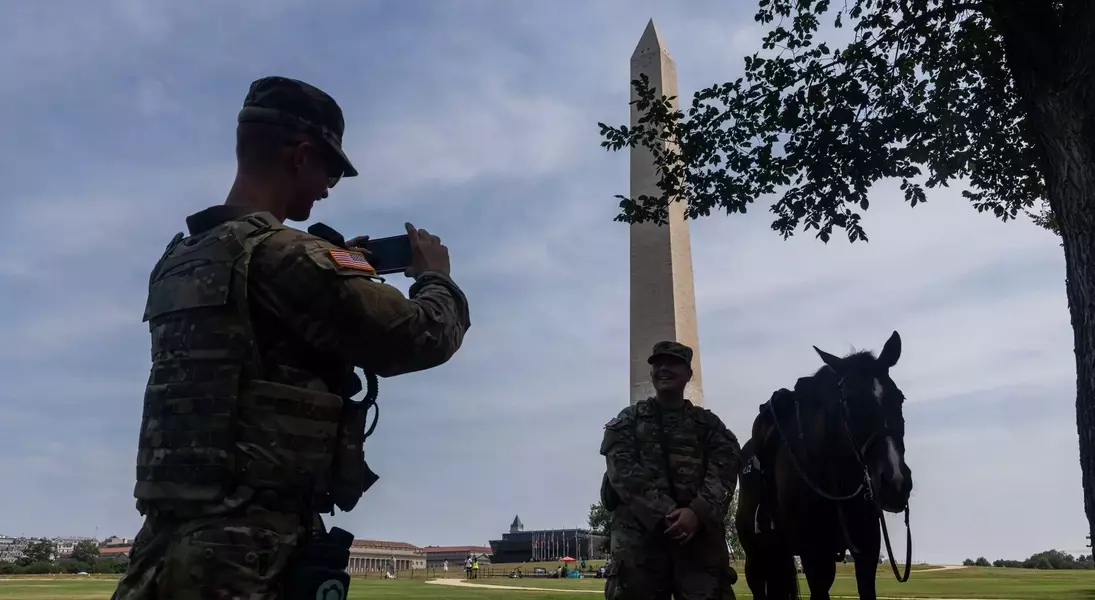
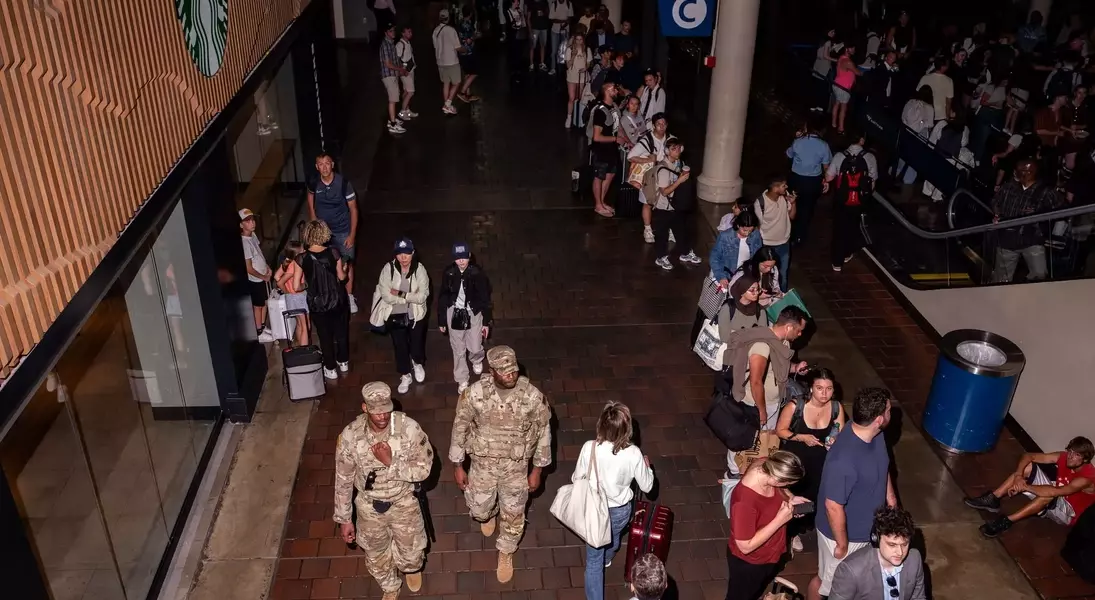
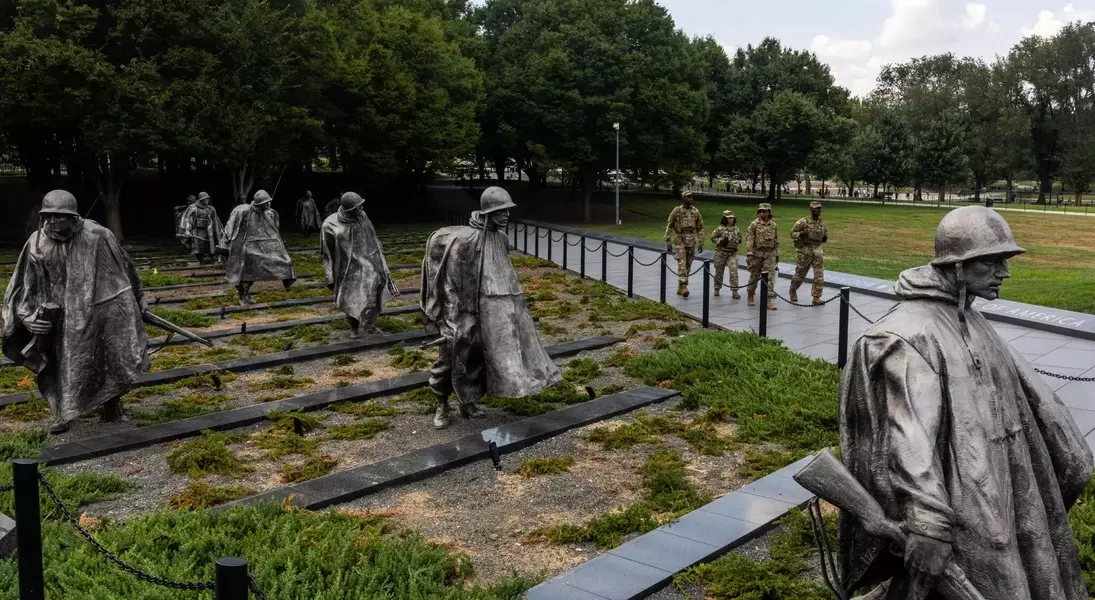
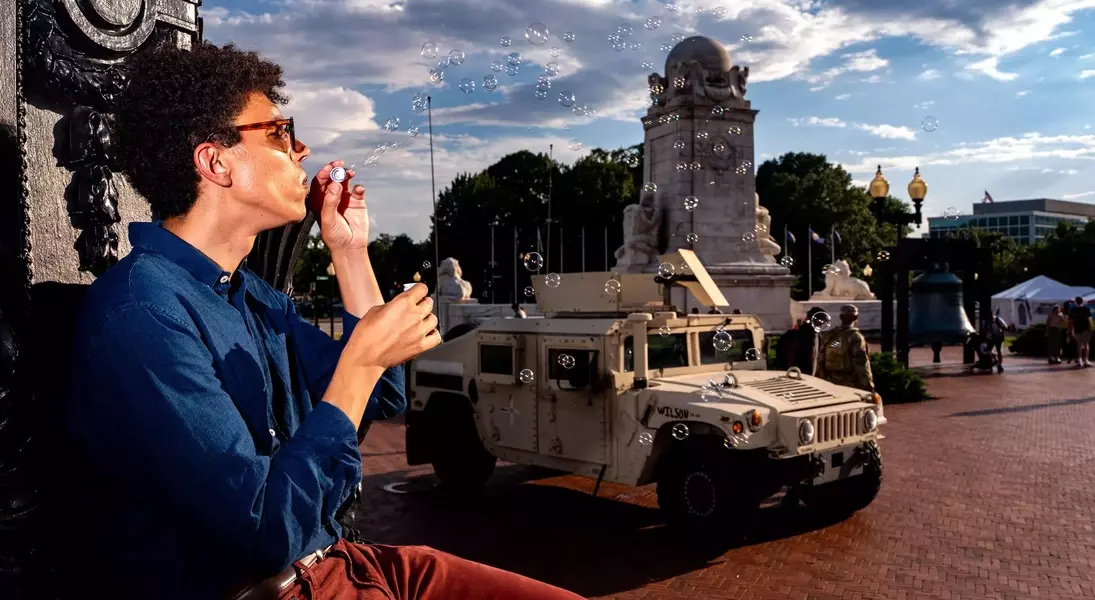

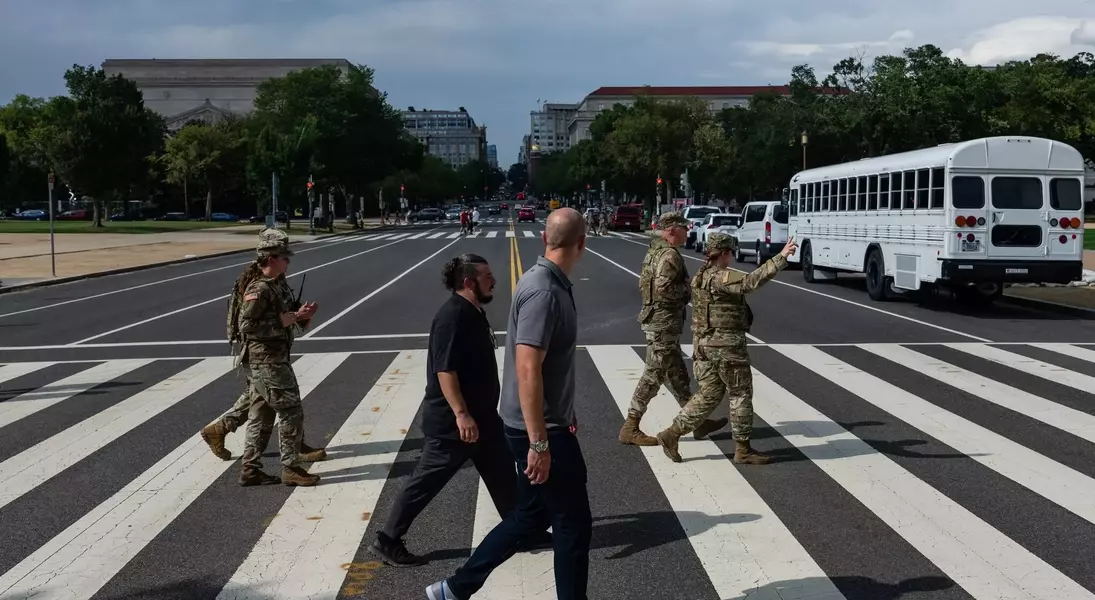
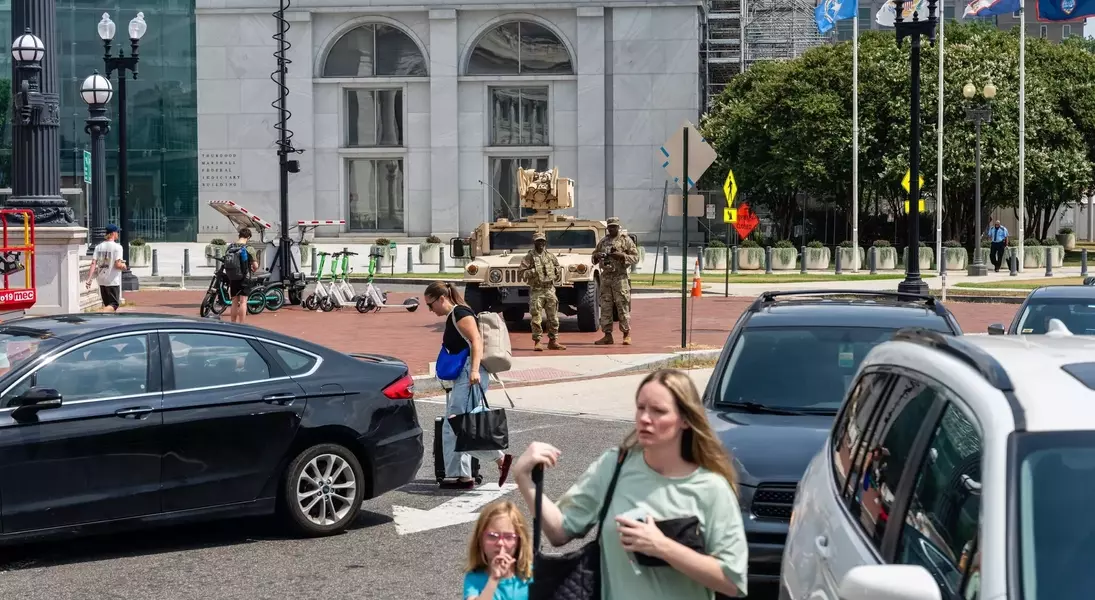
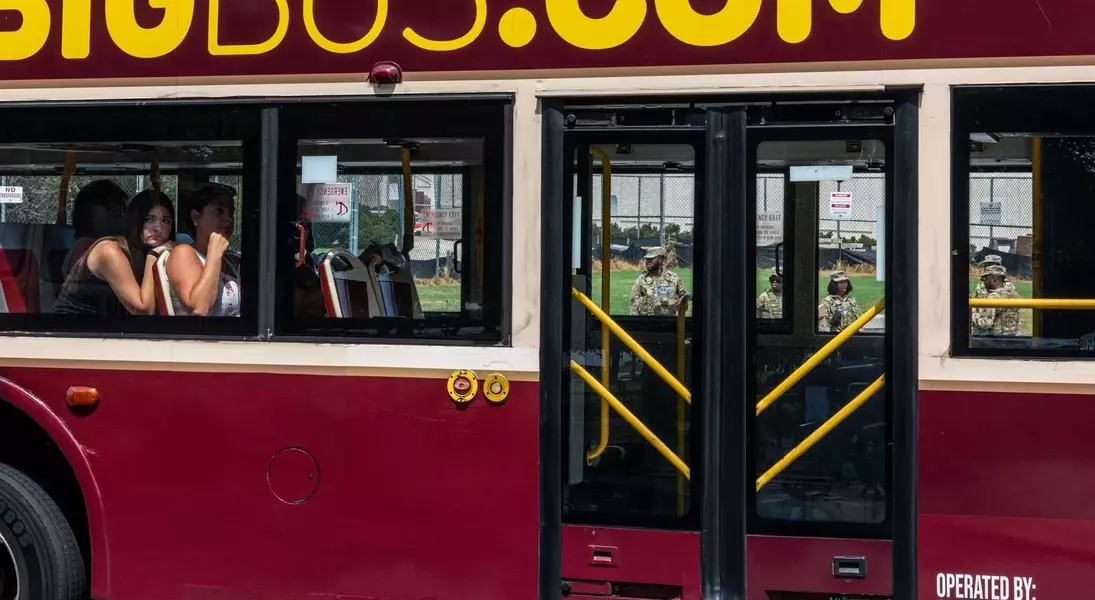


The nation's capital is currently experiencing a significant augmentation of its security forces, with an expanded deployment of National Guard personnel. This surge in military presence, initially comprised of D.C. Guard members, is now being bolstered by troops from several Republican-governed states, responding to federal requests for support. While the stated objective is to reinforce law enforcement capabilities in Washington D.C., questions persist regarding the specific operational parameters, including whether these troops will carry firearms and their precise involvement in civilian policing. This development has sparked debate among legal experts and civil liberties advocates, who express concerns about the implications of a heightened military presence in urban areas and the blurring lines between military support and domestic law enforcement. The ongoing deployment underscores the complex interplay between federal authority and local governance, raising important considerations about civil liberties and the role of the military in maintaining domestic order.
The current military deployment in Washington D.C. has drawn considerable attention, as additional National Guard units are being dispatched to the city. This expansion follows an initial deployment of D.C. National Guard troops, now supplemented by contingents from states like Louisiana, Mississippi, Ohio, South Carolina, and West Virginia. These state-level commitments, totaling an anticipated thousand additional troops, signify a broader effort to bolster security in the capital. However, the precise mission and operational guidelines for these forces remain somewhat ambiguous, leading to ongoing discussions about their roles. The troops have primarily been observed in high-visibility areas such as the National Mall and other tourist-heavy locales, and there are plans to extend their presence to key metro stations.
Expanding Military Presence in the Capital
The capital's security posture is being significantly reinforced with an influx of National Guard personnel. Initially, approximately 800 D.C. National Guard troops were deployed, and this number is now poised to swell with the arrival of units from other states. States with Republican governors have pledged an additional thousand troops, responding to requests from the Trump administration. This expansion raises crucial questions about the scope of their duties, particularly regarding armament and direct law enforcement involvement. Despite the Army's efforts to position these troops in a supportive role, distinct from direct policing, the ambiguity surrounding their operational rules of engagement has become a focal point of discussion.
The ongoing military buildup in Washington D.C. is a complex issue, characterized by a steady increase in National Guard deployment. The initial deployment of D.C. National Guard troops has been significantly augmented by forces from various states, including Louisiana, Mississippi, Ohio, South Carolina, and West Virginia. These states, under Republican leadership, have committed over a thousand additional personnel, bringing the total number of troops in the capital to nearly 2,000. While the official stance is that these troops are primarily in a support capacity, assisting federal agents and local police without engaging in direct law enforcement actions like arrests, the specifics of their armament and authority remain fluid and subject to change based on presidential directives. The deployment has largely focused on securing prominent landmarks, tourist attractions, and key transportation hubs, creating a visible military presence that has, at times, become a subject of public interaction and social media commentary. This evolving situation highlights the delicate balance between security imperatives and concerns over the militarization of civilian spaces, particularly as legal experts raise questions about the appropriateness of military personnel undertaking roles traditionally reserved for local law enforcement. Furthermore, the logistical challenges of housing and integrating such a large number of diverse military personnel from various states underscore the complexity of this large-scale operation, necessitating innovative solutions for accommodations and resource management.
Operational Ambiguities and Legal Ramifications
The expanded National Guard deployment in Washington D.C. is fraught with operational ambiguities and significant legal implications. A central point of contention revolves around whether these troops will be armed and their precise authority in interacting with the civilian population. While Army officials have indicated a supportive role, avoiding direct law enforcement, the messaging around their armament has been inconsistent, oscillating between weapons being "close by" and potentially being carried based on mission requirements. This vagueness, coupled with the unconventional involvement of military lawyers in prosecuting misdemeanor cases, raises concerns about a potential overreach of military authority into civilian legal and policing domains, challenging established norms regarding the separation of military and domestic law enforcement functions.
The deployment of additional National Guard troops to Washington D.C. is not without its complexities, particularly concerning their operational mandates and legal standing. A critical debate centers on the issue of armament; while initial statements suggested troops would not be armed, subsequent clarifications introduced the possibility of weapons being carried if deemed necessary for their mission. This shifting narrative has fueled uncertainty and concern among the public and legal observers alike. Currently, troops on the ground are generally unarmed, with weapons stored securely in armories, a measure taken to mitigate the risks associated with close-quarter engagements during security operations. However, the ultimate decision to arm these forces rests with operational commanders, underscoring a dynamic and potentially adaptable approach to their role. Beyond the issue of armament, the involvement of National Guard military lawyers in supporting the U.S. attorney's office by handling misdemeanor cases represents a notable and, according to legal experts, unusual precedent. This move, while perhaps intended to alleviate the burden on civilian prosecutorial bodies, raises questions about the appropriate boundaries between military and civilian judicial systems. The challenges extend to logistical aspects as well, with the National Guard grappling with the housing of incoming troops from out-of-state, requiring creative solutions like utilizing vacant government buildings for temporary accommodation. This comprehensive deployment, therefore, continues to navigate a landscape of operational questions, legal scrutiny, and logistical hurdles, reflecting the broader complexities of federal intervention in metropolitan security.
